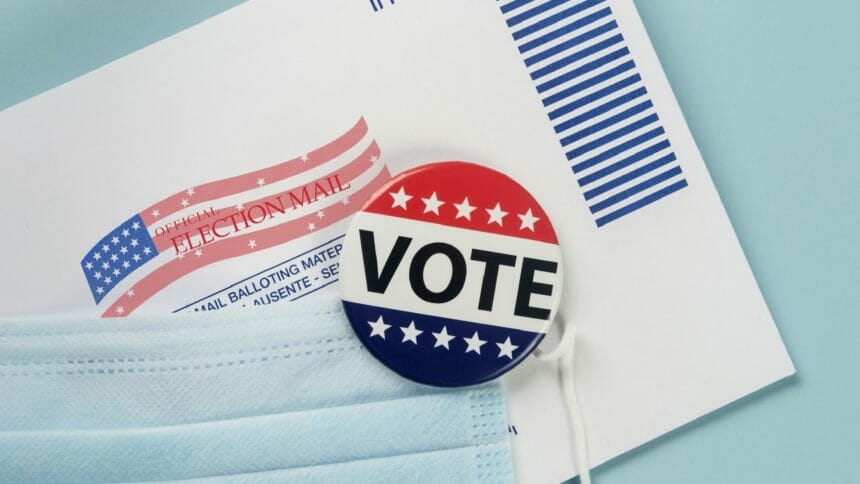“It’s not as simple as it once was.”
That is how Pennsylvania Health Care Association President and CEO Zach Shamberg summed up voting in the 2020 November election during a virtual press conference on Thursday. Shamberg discussed how assisted living communities and nursing homes are preparing to support the state’s 50,000 registered older voters’ participation in the voting process and how state and federal governments will play a pivotal role.
With a series of changes to Pennsylvania’s voting processes this year, including some stemming from the pandemic, Shamberg said it is more important than ever that long-term care facilities are equipped to facilitate mail-in, absentee and in-person voting for their residents.
“Long-term care residents have been uniquely impacted by both of these issues — the COVID-19 pandemic and the new voting guidelines — perhaps more than any other demographic or population across the country,” he said. “Being admitted into a nursing home, or moving into a personal care home or assisted living community, doesn’t mean that a resident must forfeit their involvement in the political process.”
In past years, PHCA facilitated legislative visits, town halls and debates in its member facilities to provide opportunities for candidates to meet older voters. Many long-term care facilities also served as polling places.
But the closing of facilities due to concerns over the COVID-19 pandemic had disrupted the political process for long-term care residents, Shamberg said. The Centers for Disease Control and Prevention recommends relocating polling locations from nursing homes, senior living residences and other congregate care settings.
“It’s not as simple as it once was,” he said.
North Carolina and Louisiana have laws preventing long-term care facility staff from assisting residents with voting in any way. In Tennessee, an obscure law prevents nursing home residents from receiving an absentee ballot if they are registered to vote in the same county where their nursing home is located, according to the AARP. And in Texas, long-term care facility residents who leave a facility should anticipate being placed under quarantine when they return, according to the AARP.
Some North Carolina counties send teams into nursing homes to assist voters or take them to polling places, but the coronavirus has limited that service this year. Similarly, Florida and Wisconsin have suspended efforts to send teams to nursing homes to assist with voting, according to ProPublica.
State and federal agencies have issued guidance and directives regarding ensuring that older adults can exercise their right to vote. Last week, the Centers for Medicare & Medicaid Services issued a directive affirming the right of nursing home residents to vote, encouraging states, localities and providers to collaborate to ensure a resident’s right to vote is not impeded. In Pennsylvania, the Department of Human Services Office of Long-Term Living issued a similar directive for personal care homes and assisted living residences.
The American Bar Association Commission on Law and Aging and the University of Pennsylvania’s Penn Memory Center recently released a new guide for assisting voters who have cognitive impairments, such as Alzheimer’s disease, or an intellectual disability or other brain illness or disorder, such as stroke or head injury.
LeadingAge has published a voting toolkit and developed an online “Civic Action Center” to provide information about voting and the upcoming election.
Providers, they say, are doing their best.
Jewish Home Family, a Rockleigh, NJ-based senior living provider, said that in the past, many residents chose to go to the polls, having worked at them. This year, with the threat of COVID-19, most residents who are registered voters received an absentee ballot in the mail.
“Our elders are very informed about politics, very aware of the current political climate and very informed about the candidate running for office at all levels from the Senate to the presidency,” said Julie Cochrane, director of recreation at Jewish Home Assisted Living.



